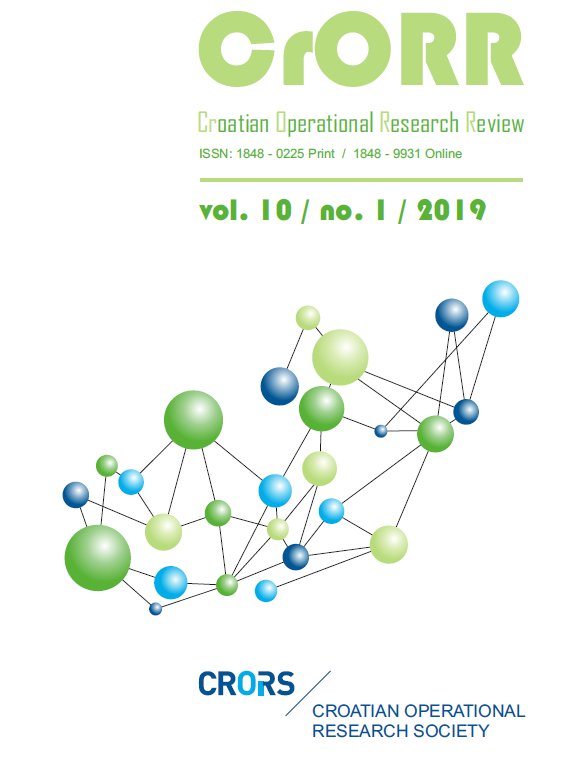Do the most frequently used dynamic panel data estimators have the best performance in a small sample? A Monte Carlo comparison
Abstract
Differenced GMM and system GMM estimators are the two most frequently used dynamic panel estimators. Regardless the fact that both estimators are proposed for samples with a large N and short T, both of them are frequently used for small samples. Therefore, this paper compares the small sample properties of these two estimators with standard dynamic LSDV and LSDV bias-corrected estimators to examine the justification of their frequent use. Data set dimensions are formed considering dimensions of previous empirical studies that use dynamic panel data on small samples. The results show that LSDV bias-corrected estimator has the smallest RMSE in almost every design while in terms of bias, the results are mixed. LSDV bias-corrected outperforms both GMM estimators in terms of bias in design when the number of individuals is 10 and the number of time periods is 30. GMM estimators show somewhat better properties in terms of bias in design when the number of individuals is 30 and the number of time periods is 10.
Downloads
Published
Issue
Section
License
- Authors retain copyright and grant the journal right of first publication with the work simultaneously licensed under a Creative Commons Attribution License that allows others to share the work with an acknowledgement of the work's authorship and initial publication in this journal
- Authors are able to enter into separate, additional contractual arrangements for the non-exclusive distribution of the journal's published version of the work (e.g., post it to an institutional repository or publish it in a book), with an acknowledgement of its initial publication in this journal.
- Authors are permitted and encouraged to post their work online (e.g., in institutional repositories or on their website) prior to and during the submission process, as it can lead to productive exchanges, as well as earlier and greater citation of published work (See The Effect of Open Access).


